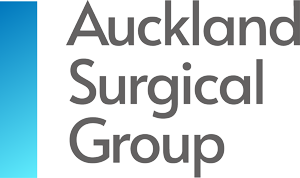Oesophageal cancer surgery
Compassionate, expert care for cancer of the oesophagus
Understanding oesophageal cancer
Oesophageal cancer (also called cancer of the oesophagus or gullet) is a serious condition where malignant cells develop in the lining of the oesophagus, the muscular tube that carries food and liquids from your throat to your stomach. While it can be a life-changing diagnosis, advances in surgical care and early detection mean there are effective treatment options available.
At Auckland Laparoscopic Surgery, we specialise in providing safe, evidence-based surgical treatment for patients with oesophageal cancer. Our team understands the emotional toll this diagnosis can have, and we are here to support you every step of the way, with honesty, compassion, and expert care.
Common symptoms of oesophageal cancer
Many symptoms of oesophageal cancer can be subtle at first. If you experience any of the following, it’s important to see your doctor promptly:
- Difficulty swallowing (dysphagia)
- Unexplained weight loss
- Pain or discomfort behind the breastbone or upper stomach
- Persistent heartburn or reflux
- Chronic cough or hoarseness
- Anaemia and or melaena (black bowel motions) due to bleeding from the upper gut
Diagnosing oesophageal cancer
Diagnosis usually involves a combination of:
- Endoscopy (a thin camera passed into the oesophagus)
- Biopsy (tissue samples taken for testing)
- CT or PET scans to determine the size and spread of the tumour
Once confirmed, your care will be coordinated by a multidisciplinary team to plan the best treatment pathway.
Surgical treatment for oesophageal cancer
For many patients, surgery is a key part of oesophageal cancer treatment. The most common procedure is an oesophagectomy, where part or all of the oesophagus is removed. Depending on your situation, the stomach or sometimes a segment of the bowel may be reshaped to replace the oesophagus and maintain your ability to swallow and eat.
We typically perform minimally invasive (laparoscopic or thoracoscopic) surgery wherever possible to support a faster recovery, less pain, and reduced risk of complications.
Types of oesophageal surgery we offer
- Minimally Invasive Oesophagectomy (MIO) – using small incisions in the abdomen and/or chest
- Open Oesophagectomy – in complex or advanced cases
- Combined treatment – surgery often forms part of a treatment plan including chemotherapy and sometimes radiation
Your surgeon will explain your options in detail based on the stage of your cancer, your overall health, and your personal preferences.
What to expect after surgery
Recovery from oesophageal surgery can take several weeks. Initially, you may be cared for in an intensive care unit and will receive nutrition through a feeding tube until you can eat normally. We provide expert post-operative care including pain management, nutritional guidance, and emotional support to help you return to normal life.
- Potential for complete cancer removal (curative intent)
- Relief from swallowing difficulties
- Improved long-term survival when combined with other treatments
- Advances in minimally invasive techniques reduce recovery time
Risks and considerations
Like all major surgery, oesophagectomy carries risks. These may include:
- Infection or bleeding
- Leaks at the join (anastomosis) between stomach/bowel and oesophagus
- Difficulty swallowing after surgery
- Weight loss or changes in digestion
- Lung complications
Your surgeon will discuss these with you and ensure you are medically optimised before surgery.
Your support team
From diagnosis to recovery, our dedicated team includes:
- Specialist Upper GI Surgeons
- Anaesthetists experienced in complex cancer cases
- Dietitians
- Psychologists and emotional wellbeing support
We are here to walk this path with you.
We’re with you every step of the way
At Auckland Laparoscopic Surgery, we’re committed to providing the highest standard of surgical care for patients with oesophageal cancer. We recognise this can be an overwhelming time, but you’re not alone. Every patient receives personalised care in a respectful, supportive environment.
If you or someone you love has been diagnosed with oesophageal cancer, we’re here to help. Contact us today to arrange a consultation or learn more about your options.

